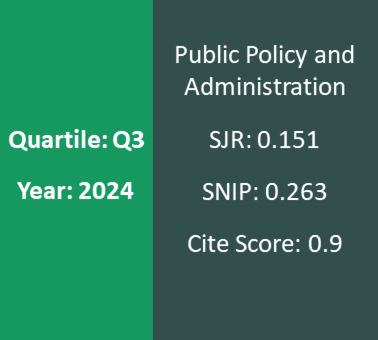Achievements of Lithuanian Macroeconomics and Problem of Increasing State Revenue
Keywords:
fiscal policy, budget revenue and expenditure, taxes paid to the national budget.Abstract
With the 2002 global recession Lithuania demonstrated its resistance and flexibility and showed remarkable results
(rapid GDP growth, rise in wages, strong Litas; consolidated budget deficit and public debt in line with the Maastricht
criteria). However, from the structural viewpoint, Lithuania’s economy is unbalanced – we still experience high
unemployment rate, slow wage, income and consumption increase, extensive development of small and medium business,
and uneven regional development. All of the above influence the formation of the state revenues. Budget revenues-to-GDP
have been on the decrease since 1998.
The rapidly increasing GDP and decreasing state revenues show that the compilation of the state budget is not related
to the GDP. The state focuses its attention on macroeconomic indicators failing to take sufficient account of the structural
problems. Reasons for the falling state revenues lie in the fiscal policy. They are there when compiling the new budget.
The reasons for the ever decreasing state revenues lie not only in the shadow economy and tax collection. Therefore the
measures adopted by the Government are inadequate and cannot fully solve the problem.
The main reasons for the decrease in the state revenue are as follows:
• Lithuania’s fiscal policy is based on the priority of distributing expenditure rather than increasing the state
revenues;
• inflexible fiscal policy and the freezing of wages, taking no account of the needs of the economy and the situation;
• drawbacks of the tax system: 1) too large a tax burden on consumption and labour, whereas the share of capital,
land, and real property taxes is very small; 2) the tax system is oriented towards the interests of big capital rather
than small and medium-sized business; the tax burden on smaller companies is much larger than big ones;
• the Ministry of Finance focuses on distributing the expenditure rather than analytical, strategic activities; therefore
the budget planning is based on current objectives rather than strategic decisions;
• gender-based distortions in the state expenditure structure have a negative impact on the budget revenue in the
long run.
To solve the problem of decreasing state revenues, the fiscal policy makers should adopt a strategic view in particular
when compiling the budget. One of the main objectives of the fiscal policy should be the increase in the state revenues. To
achieve this objective the following measures should be taken:
• co-ordination of the fiscal, labour and social policy as well as the policy on business development creating
preconditions for a rapid rise in wages and business development;
• reform of the tax system directed towards the removal of disproportion between the taxes on labour and capital,
land and real property and transition towards a progressive tax system;
• state budget planning taking into account the factors of the long-term economic growth, i.e. promoting science,
education, development of high technologies and innovations;
• gender-based analysis, or introduction of widely used advanced methods in the compilation of the budget;
• strengthening of the analytical and forecasting activities of the Ministry of Finance by introducing widely used
models of Input-Output of financial flows of national accounts and other mathematical models that show the flow
of finances from the use of resources level up to the end-user, in other words, or relates the GDP to the formation
of state finances.





